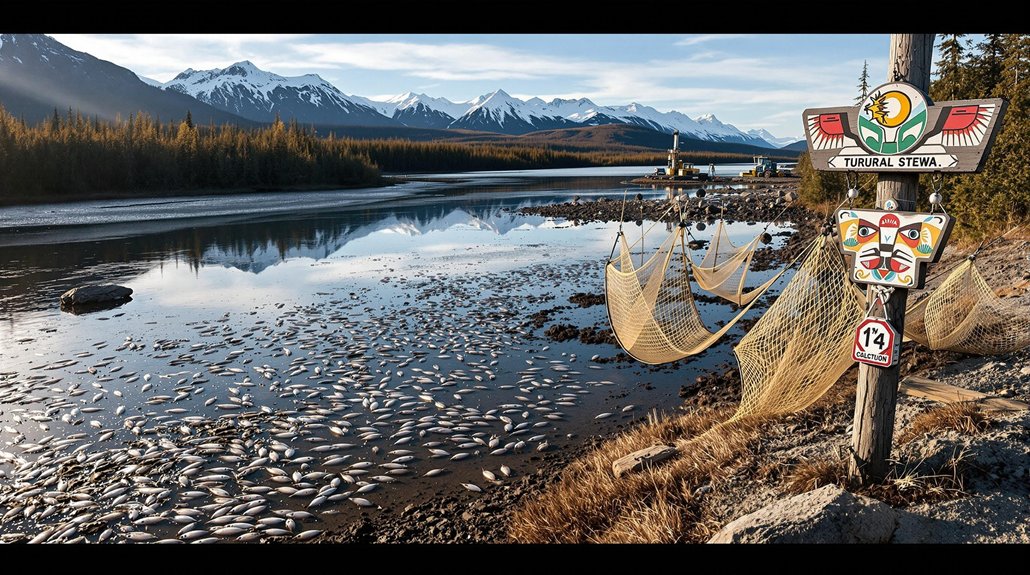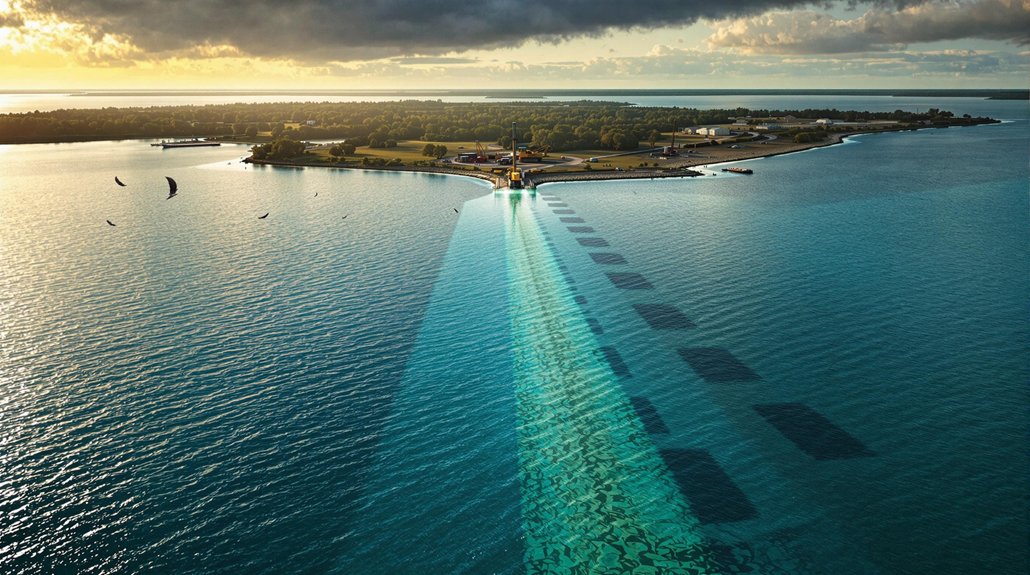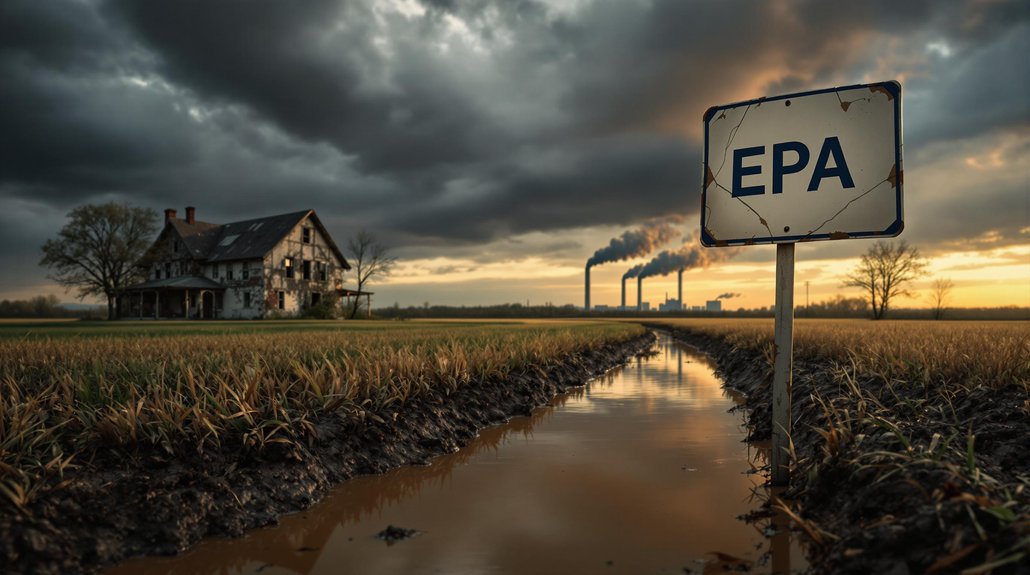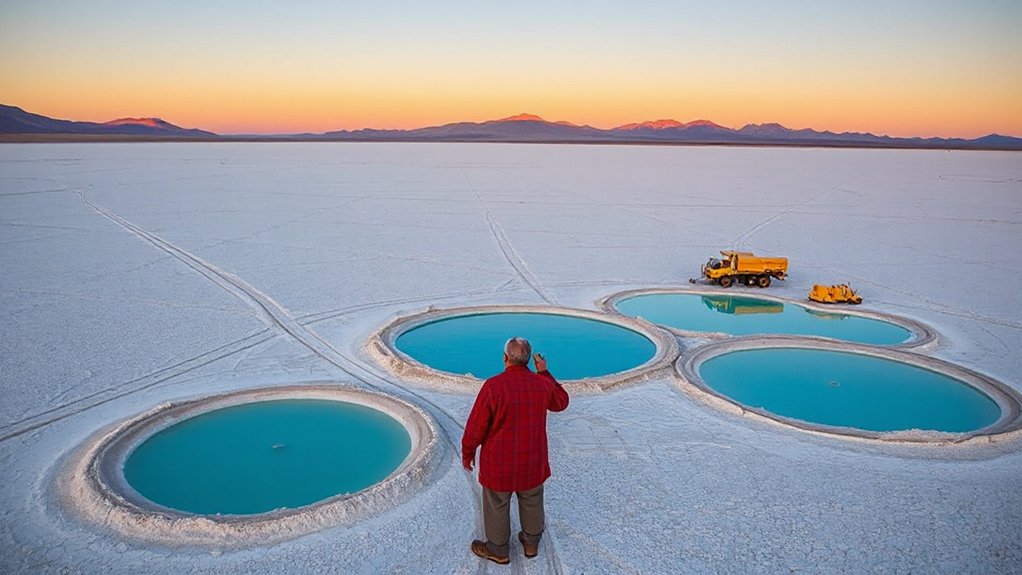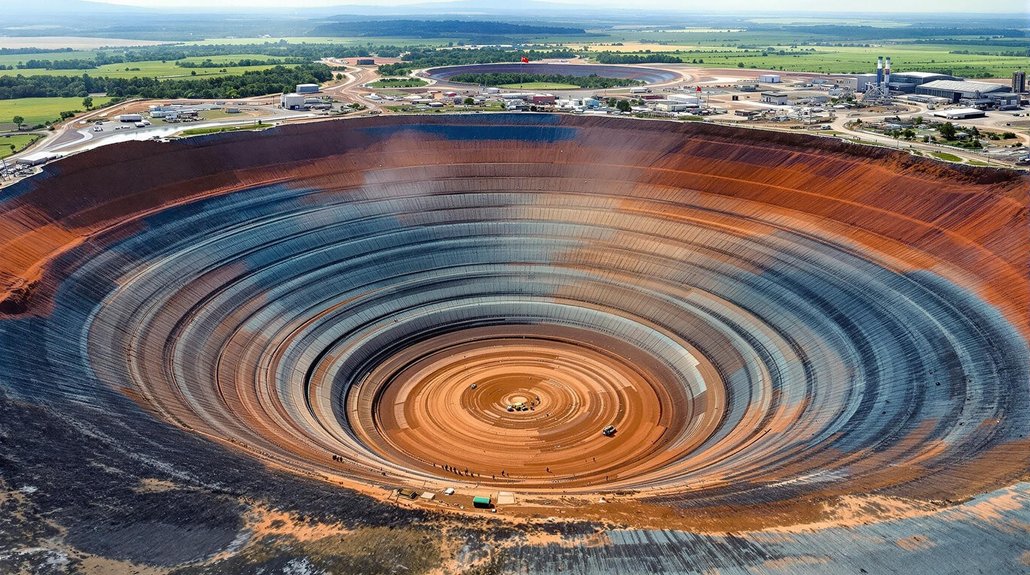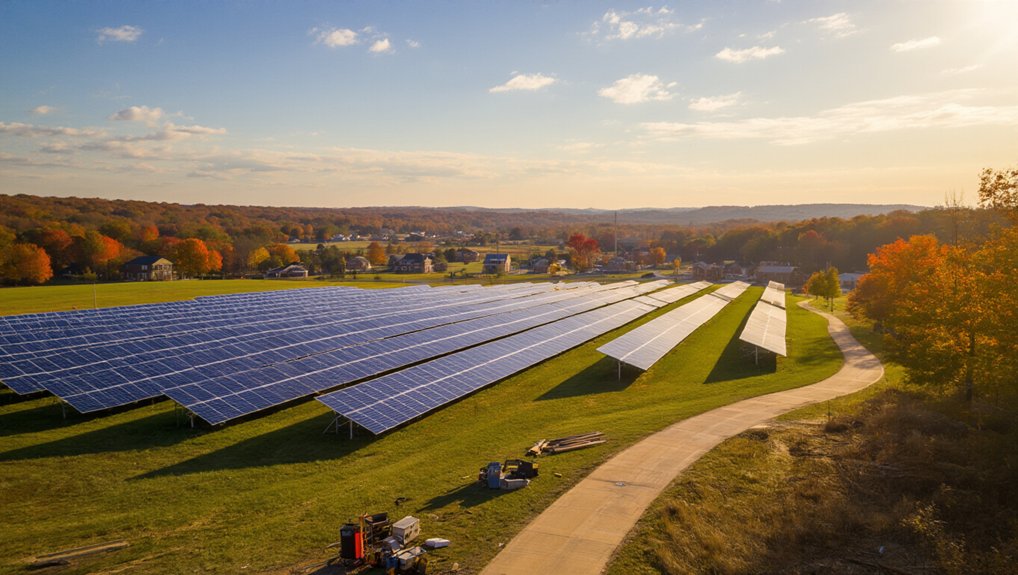The Native Village of Elim is fighting tooth and nail against Panther Minerals’ uranium plans. This Inupiat community voted unanimously against drilling that would threaten their watershed and beloved salmon. The mining operation would guzzle 18,000 gallons of water daily, pumping toxic chemicals near critical ecosystems. Students, elders—everybody’s mobilized. Just 30 miles from their homes, this isn’t just an environmental issue. It’s survival, plain and simple. The full story gets worse.
As a Canadian mining company prepares to drill for uranium near Elim, Alaska, the indigenous community is fighting back with everything they’ve got. Panther Minerals announced plans in May to drill 50 holes just 30 miles north of the village. They’re after an estimated one million pounds of uranium. The locals aren’t having it.
In a unanimous 20-0 vote, the Native Village of Elim passed a resolution opposing the Boulder Creek exploration. Their concerns? Oh, just the total contamination of their watershed and the Tubutulik River. No big deal—except it absolutely is. Salmon isn’t just food in Elim. It’s culture, tradition, and their economic lifeline.
The mining operation would guzzle 18,000 gallons of water daily while using toxic chemicals that could poison everything downstream. Uranium isn’t exactly known for its environmental friendliness. Just ask the Navajo Nation, who banned uranium mining in 2005 after watching their people suffer. They’re still waiting for cleanup of over 500 abandoned mines on their land.
Poison paradise first, ask for forgiveness later—the uranium industry’s unspoken motto since day one.
Alaska’s only previous uranium venture—the Ross-Adams mine from 1957 to 1971—left a toxic mess in Tongass National Forest. Tests in the Boulder Creek area have already revealed concerning levels of arsenic and molybdenum that could worsen with mining activities. History has a nasty habit of repeating itself when profit is involved.
Elim residents aren’t just sitting around. “Elim Students Against Uranium” formed to research health impacts, while elders share stories of past resistance. The community is urging people to submit their objections to the Alaska Department of Natural Resources before the July 25 deadline. They’re demanding government-to-government consultation and proper environmental assessments.
The situation exposes the same old story: indigenous communities bearing the brunt of resource extraction while outsiders reap the rewards. It’s a clash between those viewing the land as a commodity and those seeing it as their ancestral home.
Meanwhile, debates rage about nuclear power as a climate solution. Funny how the conversation about “clean energy” rarely mentions the communities destroyed to produce it. For Elim, this isn’t about energy policy debates. It’s about survival.
